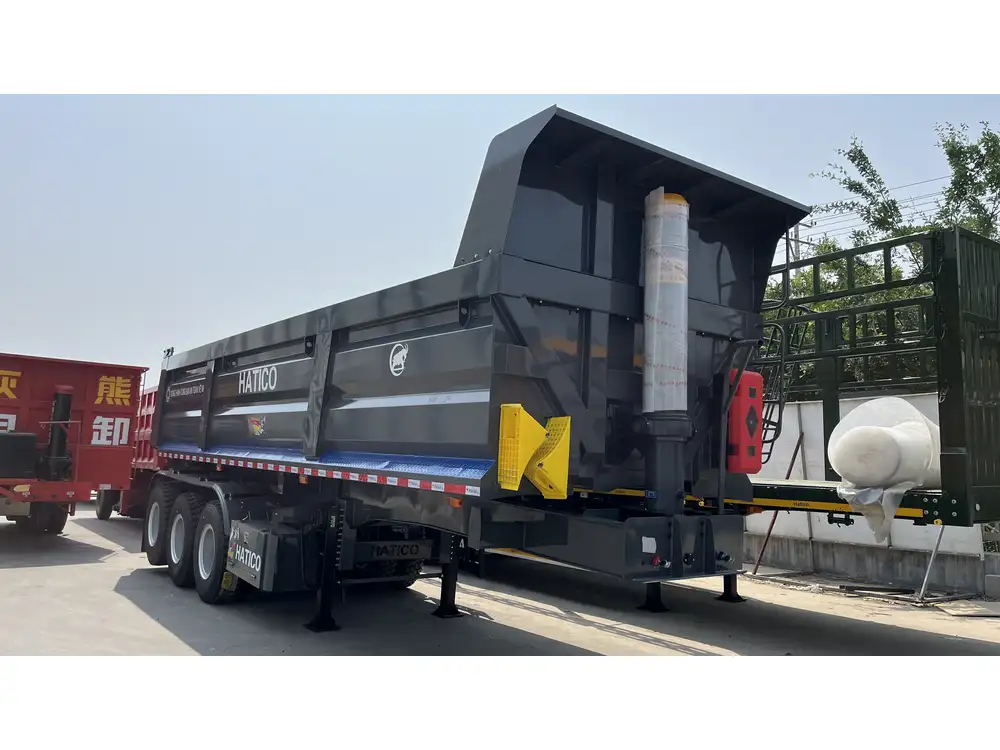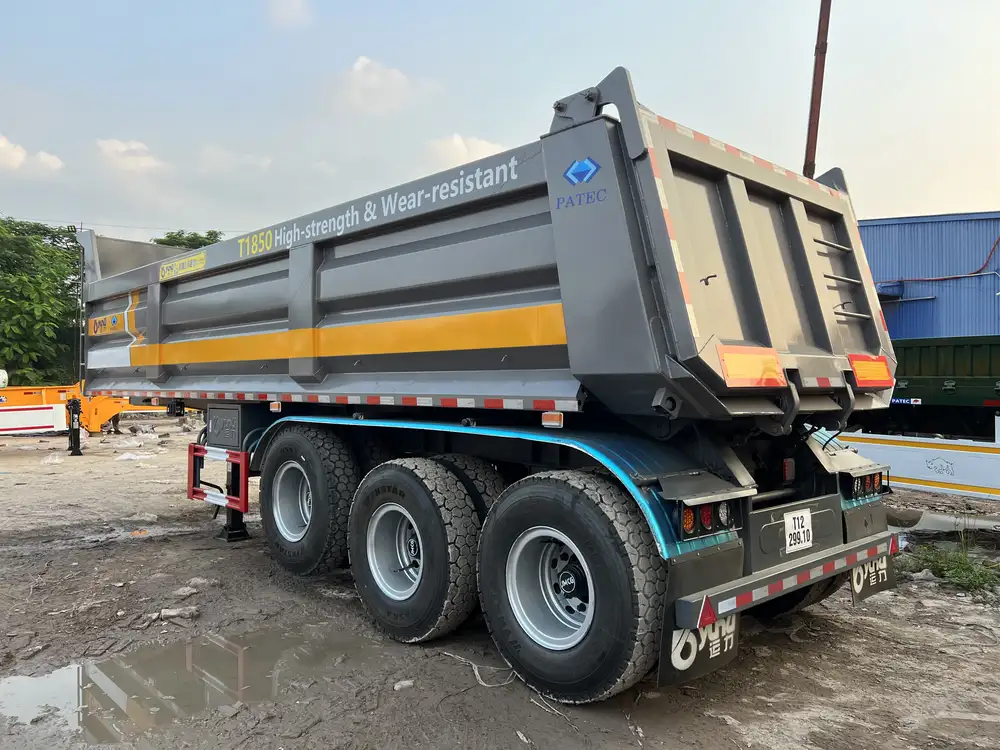When it comes to trailering, many scenarios arise that require crucial decisions to ensure safety and compliance with regulations. One pressing question often surfaces: Can you keep propane tanks inside a trailer? Understanding the nuances of propane storage is integral for trailer owners, particularly those who utilize propane for cooking, heating, or powering appliances. This article delves into the complexities surrounding this issue, providing clear guidance and crucial considerations for safe usage and storage of propane tanks within trailers.
Understanding Propane Storage Regulations
Before addressing the core question, it’s vital to recognize the regulatory framework that governs propane tank storage. Different regions have specific laws that dictate how and where propane tanks can be stored, particularly on trailers. Here’s a succinct overview of common regulations:
| Regulation Type | Description |
|---|---|
| Local Fire Codes | Vary by jurisdiction; often restrict indoor storage of propane tanks due to fire hazards. |
| Transportation Safety | Federal regulations may apply concerning the transportation of hazardous materials, including propane. |
| Trailer Manufacturer Guidelines | Many manufacturers provide specific guidelines about storing hazardous materials in their trailers. |
In most cases, keeping propane tanks inside a trailer is discouraged due to the potential risks, such as leaks, which can lead to explosions or fires if the tanks are not stored or vented properly.
Storage Guidelines by Propane Regulations
Local regulations typically emphasize the importance of proper storage and handling practices with propane. Here are critical highlights to consider:
- Ventilation Requirements: Any space where propane tanks are stored must be adequately ventilated to prevent the accumulation of gas in the event of a leak.
- Distance from Ignition Sources: Propane tanks should be stored far from any sources of ignition, including electrical appliances and heating systems.
- Secure Storage: Tanks should be secured to prevent tipping and rolling, which can lead to rupturing valves and leaks.

Risks and Hazards of Storing Propane Tanks Inside a Trailer
Fire and Explosion Risks
Propane is highly flammable; therefore, the inherent risks associated with its storage warrant serious consideration. Potential hazards include:
- Gas Accumulation: Inadequate ventilation can lead to gas buildup, creating an explosive environment.
- Flame Interaction: Even a minor spark can ignite propane vapors if they are present, leading to catastrophic consequences.
Health Risks from Propane Exposure
Beyond physical dangers, improper storage can also pose health risks:
- Asphyxiation Hazards: In confined spaces, propane can displace oxygen, leading to suffocation, especially if propane is allowed to leak.
- Chemical Exposure: Prolonged exposure to propane gas can also lead to headaches, dizziness, and nausea.

Legal Consequences
Failure to adhere to legal guidelines can result in severe penalties:
- Fines: Regulatory bodies may impose fines or other sanctions for violations related to propane storage.
- Liability Issues: In the event of an accident, improper storage can lead to liability problems for the trailer owner.
Alternative Solutions for Propane Storage
Given the complexities and dangers associated with storing propane tanks inside a trailer, exploring alternative solutions becomes paramount. Here are several recommended practices for safely keeping propane tanks:
Outside Storage Solutions
Secure, Ventilated Storage Compartment
- Many trailer models come equipped with designated, ventilated compartments designed specifically for propane tank storage.
- Ensure these compartments are lockable and far from any heating elements.
Use of Propane Tank Holders
- These can be mounted externally on the trailer, securely holding the tanks while allowing sufficient airflow.
- Ensure these holders comply with national safety standards.
Standalone Propane Storage Shed
- Consider installing a propane storage shed that is weatherproof and ventilated.
- This can be located near your home or parking area for easy access and compliance with local regulations.

Alternatives to Traditional Propane Storage
Some innovative solutions and substitutes can alleviate the need for propane tanks altogether:
| Alternative | Benefits |
|---|---|
| Electric Appliances | Greater safety with no flammable gas and often more convenient for indoor use. |
| Solar Generators | Eco-friendly, quiet, and versatile; they’re ideal for recreational uses without the hazards of propane. |
| Portable Battery Systems | Increasingly popular for camping and outdoor activities, offering an effective substitute. |
Best Practices for Propane Safety
- Regular Inspections: Routinely inspect hoses, connections, and tanks for signs of wear or damage.
- Proper Handling: Always handle propane tanks upright, avoid dropping them, and use protective gloves if necessary.
- Training: Understand how to properly use, store, and handle propane through formal training or manufacturer guidelines.
Frequently Asked Questions

1. Can I transport propane tanks inside my trailer?
Yes, but with caution. Ensure that tanks are secured, upright, and well-ventilated. It’s crucial to check local laws regarding transportation to avoid legal pitfalls.
2. What should I do in case of a propane leak?
Immediately shut off the main valve on the propane tank if you detect a leak, evacuate the area, and call emergency services. Never attempt to repair a leak without professional help.
3. How often should I replace my propane tanks?
Propane tanks should be inspected regularly. Replacement is advisable if you notice extensive rust or cracks, or when the tank exceeds its expected lifespan—typically 12 years for most cylinders.

4. Are there safety devices for propane tanks?
Yes, numerous safety devices, such as excess flow valves, leak detection systems, and automatic shut-off valves, are designed to enhance safety.
Conclusion
The question of whether one can keep propane tanks inside a trailer is nuanced and layered with legal, safety, and practical considerations. Storing propane internally poses significant risks, prompting many to seek alternative storage solutions that ensure safety and compliance. By understanding the relevant regulations and employing best safety practices, trailer owners can effectively utilize propane in their outdoor adventures while minimizing hazards.
Taking proactive measures to secure and ventilate propane tanks outside of living quarters can significantly mitigate risks. Continuous education and adherence to safety protocols will not only protect individuals but also promote a culture of responsibility and awareness surrounding propane use, ultimately enhancing the enjoyment of trailering experiences. Emphasizing this knowledge is crucial, as informed decisions lead to safe, enjoyable, and compliant management of propane in any scenario that requires its use.



